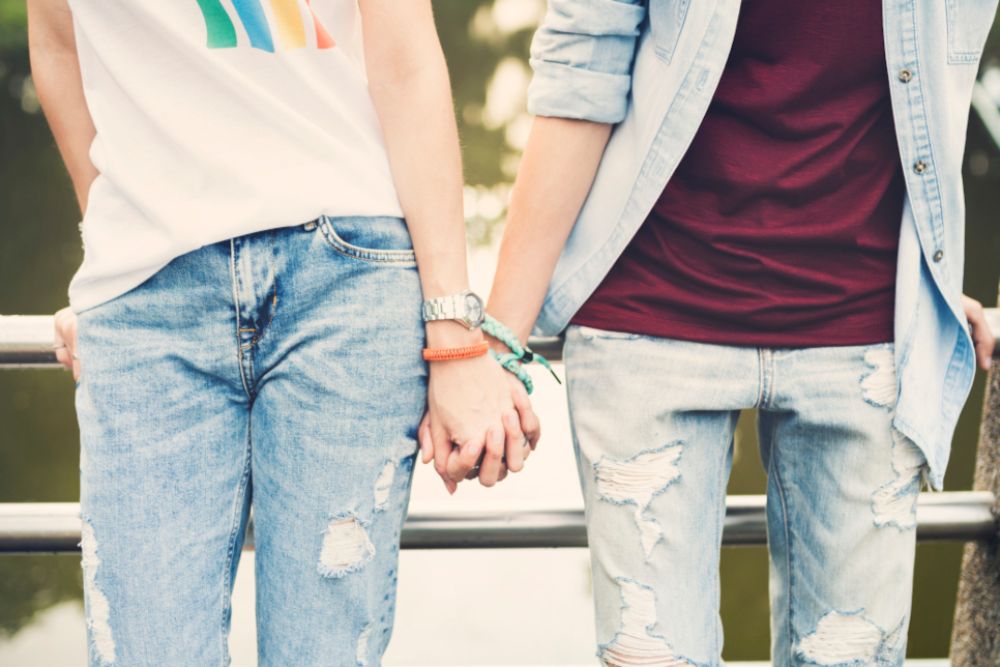
Coming out – only possible if you have a positive self-image
Sexual orientation is decided in early childhood. If a girl likes football or a boy likes playing house, this does not mean that they will grow up to be homosexual. Unfortunately, children are often still exposed to the traditional role models of men and women to this day. If children who are homosexual are forced into roles in which they don’t feel they belong, this can result in mini trauma that can make their later life more difficult. “Children who are growing up homosexual notice very early on that they are different to others. This really affects them. If they are also constantly getting signals from outside that their behaviour is incorrect, the child will permanently feel like they aren’t able to meet expectations. They will develop greater and greater feelings of rootlessness and alienation from their own family as they are unable to attribute their feelings and behaviours, and will feel increasingly like outsiders,” explains Johannes Wahala. This results in withdrawal, reticence, a lack of self-worth and feelings of guilt.
If parents notice this kind of behaviour in their child, it’s important to talk to one another: What is bothering you? What is making you sad? What is making you so closed off? “Children and young people are often worried about being rejected or cast out by their parents. It is therefore important that parents tell their children that they will always stand by them and that they will always be their son or daughter,” recommends Wahala. The actual coming out affects both parents and children. Parents often ask themselves what they’ve done wrong.
Accusations such as “you weren’t strict enough” or “you made him effeminate” are, unfortunately, not uncommon. Talking to one another should help you to find out how to deal with it. “Parents should support the young person. The most important thing is that parents stand by their child.” It is also important that the parents look for allies among their family and friends so they can talk about their uncertainties, anxieties and feelings. “The worst thing is for the topic to be kept a secret!” says Wahala. It isn't uncommon for parents to say to their homosexual son/daughter “it’s fine that you're this way, but don’t tell anyone in the family or at school, it’ll just cause problems.” Again, for the child that is a mixed message: it’s OK but at the same time it’s not OK. Of course outing can often cause conflicts in friendship groups too.
Men in particular mostly worry that their best friend will suddenly want more than just friendship. “This phenomenon does exist in all sexual orientations, though. Love is not always reciprocated. Everyone has the right to show their feelings. The person they’re speaking to must then be honest about whether they can reciprocate the feelings or not,” says Wahala. He advises pupils to turn to a guidance counsellor if they have problems at school. Every school has them, and they are often better trained in sexual education. The better the feeling of self-worth, the more a person can stand by themselves and their feelings. During childhood and adolescence it is therefore extremely important to show children and young people support and acceptance and to learn to understand their specific behaviours. This includes parents and reference persons having the attitude that being both homosexual and heterosexual is right and good, as these are different types of development and forms of expression of human sexuality.
Our interview partner
Univ.-Lekt. Mag. Johannes Wahala is a psychotherapist, sexual therapist and head of the Courage Counselling Centre.
Verein "COURAGE - Österreichisches Institut für Beziehungs- und Sexualforschung“
Windmühlgasse 15/Stiege 1/7
1060 Wien
Website Courage
The interview was conducted in April 2009 and revised in April 2022.